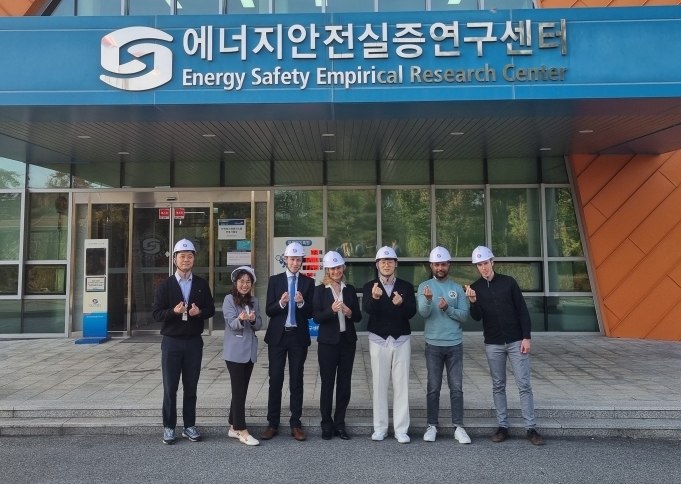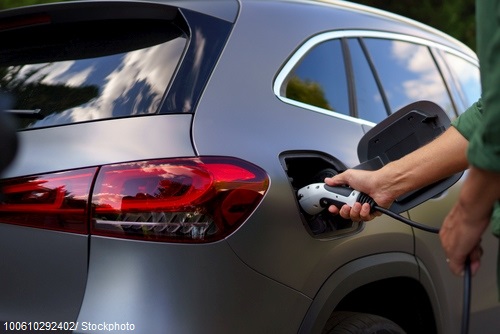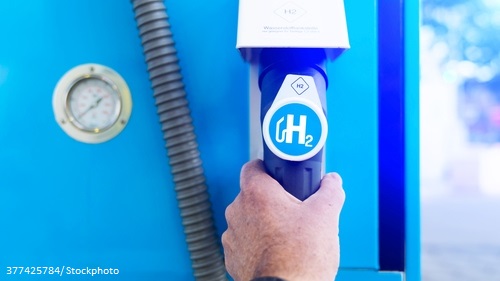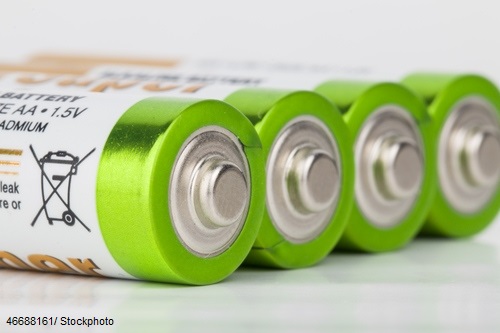Solid Processes for Korea Certifications – MPR International Visits Authorities and Test Laboratories in South Korea
The certification process for Korea is back to normal after the COVID-19 pandemic travel restrictions. During the pandemic, many foreign manufacturers suffered from the fact that Korean auditors could not travel to the production sites. During the pandemic, audits were either held remotely, paused, or in some cases carried out by third parties, depending on product type and process. Since the lifting of the travel restrictions, the auditors can once again travel internationally, and the alternative certification and re-certification processes have been discontinued. However, foreign manufacturers are still advised to obtain approvals for exports to Korea at an early stage, as almost all authorities still have a backlog for international travel and a limited personnel.

During a recent visit to South Korea, representatives from MPR International discussed the innovations in process flow with KOSHA, KGS, KTL, KTC and the relevant test labs .
Korean standards and product-specific implementation rules are regularly revised or reissued by the authorities, which sometimes has significant implications for the corresponding product manufacturers. New releases and updates are generally not announced publicly and must be tracked and implemented independently by manufacturers. Failure to comply can result in severe consequences, including certificate cancellation and/or a sales ban.
For example, the harmonization of approval standards in the area of KCs-Ex to the IECEx system is currently being pursued but has not yet been fully completed. Separate KCs Ex certification will still be required but should further simplify the process. In addition, there are many great innovations in the area of approval of equipment in the hydrogen sector and the test facilities required for this.
MPR International GmbH remains committed to maintaining close contacts with the certification bodies and test laboratories in Korea. This enables us to provide our customers with close and individual coordination and to facilitate the entry or expansion of your Korean business.
Feel free to contact us any time if you need assistance or have any questions regarding Korean certifications like KC, KC EMC, KCs, KCs for explosion safety products or KGS factory registration.
Tel. Europe: +49-69-271 37 69 261
Tel. US: +1 773 654-2673
Email: info@korea-certification.com
For more information you can download our free brochure “Korea Certification Made Easy – The Booklet“.
New Height in Eco-Friendly Car Sales
In the initial nine months of the current year, exports of environmentally conscious vehicles, including hybrids, electrics, and those powered by hydrogen, achieved a remarkable US$18 billion. In the previous month alone, automotive exports surpassed an impressive threshold of US$5.0 billion, an over 9 percent climb from the same timeframe a year ago. Total automotive exports up to this September skyrocketed to over US$52.0 billion. This trend of growth hasn’t waned and has been ongoing for 15 straight months since July of the previous year. Equipment and machinery used for the production of eco-friendly cars often require KC Certification to be approved for import and distribution in Korea.

The catalyst for this surge in automotive exports is the increased demand for eco-friendly cars. In this timeframe, these green vehicle exports reached nearly US$18 billion. The rising number in eco-friendly vehicle exports primarily occurred in North America and the European Union (EU). Exports last month to North America were substantial at over US$2.75 billion, and those to the EU were also significant, totaling over US$846 million.
Up until the third quarter of this year, there was an uptick in both the number of vehicles exported and the number of vehicles produced and sold domestically. The export figures were impressive at over two million units, a 23.7 percent growth. Domestic sales rose by 5.78 percent, resulting in approximately 1.28 million units, while production numbers swelled by over 17 percent, culminating in over 3 million units.
In reaction to the U.S. Incentives for Reduction of Auto Emissions (IRA) Act, the government has been proactive. The domestic industry’s push to boost sales of eco-friendly commercial vehicles, including those for rent and lease, has led to IRA-eligible sales reaching over 88,000 units by this September. This number is a big hike compared to the same time last year and has already exceeded the previous full year’s sales of over 73,000 units.
Feel free to contact us any time if you need assistance or have any questions regarding Korean certifications like KC, KC EMC, KCs, KCs for explosion safety products or KGS factory registration.
Tel. Europe: +49-69-271 37 69 261
Tel. US: +1 773 654-2673
Email: info@korea-certification.com
For more information you can download our free brochure “Korea Certification Made Easy – The Booklet“.
Hyundai and Iveco deepen partnership with new fuel cell bus
Hyundai Motor unveiled a new fuel cell bus in early October. The vehicle, developed in collaboration with Iveco, made its debut at Busworld 2023 in Brussels, the largest exhibition of its kind in the world. The E-Way H2 is a 12-metre long low-floor city bus with a 310 kW electric motor. It draws its energy from a fuel cell system from the Hyundai subsidiary HTWO. With the advanced system, the bus can either be fuelled with hydrogen or the integrated battery can be charged. Regardless of this, Hyundai says the bus can travel up to 450 km on one fill or charge. Components, equipment, and machinery required for fuel cell and vehicle production in many cases must undergo KC Certification or KGS Registration to be approved for import and distribution in Korea.

As early as March 2022, the two companies signed a memorandum of understanding for the joint development of vehicle technologies and platforms as well as the mutual supply of components. This initially resulted in the presentation of a jointly developed hydrogen-powered delivery vehicle in September 2022. The eDaily, based on a conventional Iveco Daily delivery van, was presented at the IAA Commercial Vehicles exhibition in Hannover. The vehicle is equipped with a 140 kW electric motor from Iveco subsidiary FPT Industrial and a 90 kW fuel cell from Hyundai Motor. The seven-tonne van is fully charged within 15 minutes and can travel up to 350 km on one charge. The payload is up to three tonnes, depending on the version.
We offer certification services for all product areas, including KC certification for consumer products and especially electronics, KC EMC certification for electronic products and KCs certification for machinery, as well as KCs for explosion-proof products. We are at your disposal for all questions regarding Korea certifications.
Feel free to contact us any time if you need assistance or have any questions regarding Korean certifications like KC, KC EMC, KCs, KCs for explosion safety products or KGS factory registration.
Tel. Europe: +49-69-271 37 69 261
Tel. US: +1 773 654-2673
Email: info@korea-certification.com
For more information you can download our free brochure “Korea Certification Made Easy – The Booklet“.
KPS recycles used Batteries for Samsung Electronics
A subsidiary of the South Korean KPS Corporation, Segi Recycling Technology, will soon recycle old batteries from so-called uninterruptible power supplies, UPS for short, on behalf of Samsung Electronics. As the business magazine KED Global reported at the beginning of July, Segi Recycling Technology signed a corresponding agreement with Samsung Electronics for the collection, transport and disposal or recycling of batteries from the industry. This will involve the recycling of spent batteries from a total of seven Samsung sites in South Korea. For battery related products, KC certification, KCs certification or other Korean product certifications are often required to be approved for the Korean market.

UPS are used in server rooms and data centres as an immediate backup power supply in case of power outages or fire. The batteries in these devices are essential for the operation of data centres where large amounts of company data are stored or many data movements take place. Currently, most batteries are still based on lead-acid cells and will gradually be replaced by newer lithium-ion batteries. Segi Recycling Technology is currently preparing to enter the EV battery recycling business. According to Chairman Kim Min-hong, recycling old industrial batteries is a good opportunity to expand business activities.
Certifications for the Korean market are a complex hurdle and difficult to navigate due to different authorities and certification systems. With over 15 years of experience in the certification business, MPR International GmbH is your best point of contact for competent service when it comes to exporting to Korea. For example, KC Safety is relevant for electronics and household products, which are mostly intended for consumers, as well as products for children and babies.
Feel free to contact us any time if you need assistance or have any questions regarding Korean certifications like KC, KC EMC, KCs, KCs for explosion safety products or KGS factory registration.
Tel. Europe: +49-69-271 37 69 261
Tel. US: +1 773 654-2673
Email: info@korea-certification.com
For more information you can download our free brochure “Korea Certification Made Easy – The Booklet“.



